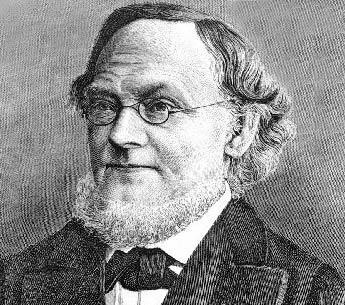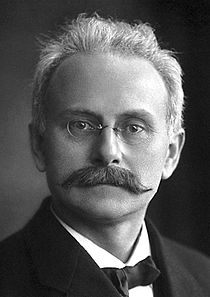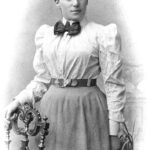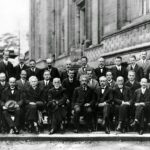April 15, 1659
Death of Simon Dach in Königsberg, Prussia (now Russia). Dach was one of the outstanding German Baroque poets.
April 15, 1707
Birth of Leonhard Euler in Basel, Switzerland. A mathematician of the Berlin Academy, Euler was one of the originators of pure mathematics. He made significant contributions to geometry, calculus, mechanics and number theory as well as observational astronomy. Euler wrote, Introductio in analysin infinitorum (1748), Institutiones calculi differentialis (1755), and calculi integralis (1770) as well as a host of articles in professional journals.
April 15, 1771
Birth of Karl Philipp Fürst zu Schwarzenberg in Vienna, Austria. Schwarzenberg was an Austrian field marshal in the wars against Napoleon. His troops actually joined with Napoleon in the 1812 war against Russia, but in he 1813 led his forces against the French. He was the allied commander in Chief at the Battle of Leipzig.
April 15, 1766
Birth of the philosopher Friedrich Bouterwek in Hannover, Germany. Bouterwek was a follower of Immanuel Kant in his earlier years, but drew away from Kant’s philosophy later. He was a professor of philosophy at the University of Göttingen. Influential works by Bouterwek include, Geschichte der neueren Poesie und Beredsamkeit (12 vols. 1801-1819), Lehrbuch der philosophischen Wissenschaften (1813), and Religion und Vernunft (1824),
April 15, 1809
Birth of Hermann Günther Grassmann (1809-1877) in Settin, Germany (now in Poland). Grassmann was a mathematician who developed a general calculus of vectors. His work in this area is exposed in Die lineale Ausdehnungslehre, ein neuer Zweig der Mathematik (1844). He taught at a high school in Settin.
April 15, 1832
Birth of Wilhelm Busch (1832-1908) in Wiedensahl, Germany. Busch was a humorous writer, painter and poet. His best known works are “Max und Moritz” and “Die fromme Helene” (1872). His drawings with humorous poems are the forerunner to the comic strip. His Max und Moritz was imported to the United States in the form of The Katzenjammer Kids or later The Captain and the Kids.
April 15, 1841
Karl Marx receives his doctorate from the University of Jena.
April 15, 1874
Birth of Johannes Stark (1874-1957) in Schickenhof, Germany. Stark won the Nobel Prize for Physics in 1919 for his for his work on the effects of electrical fields on light spectrum. The effect is now called the “Stark effect”. Stark was a professor of physics at the Universities of Greifswald and Würzburg. Stark was closely involved with the Deutsche Physik movement under the Nazi regime. In 1947, following the defeat of Germany in World War II, Stark was classified as a “Major Offender” and received a sentence of four years imprisonment by a denazification court.
April 15, 1920
Birth of Richard von Weizäcker in Stuttgart, Germany. Richard von Weizsäcker is a German politician. He served as Governing Mayor of West Berlin from 1981 to 1984, and as President of the Federal Republic of Germany from 1984 to 1994.
April 15, 1942
Death of Robert Musil in Geneva, Switzerland. A novelist, Musil is known for Der Mann ohne Eigenschaften, Die Schwärmer, and Vinzenz und die Freundin bedeutender Männer. In the face of the German annexation of Austria, he fled to Switzerland.
April 15, 1996
The treasure of Primos found by Heinrich Schliemann in 1873 in Troy and taken from Berlin in 1945 by Russians is exhibited in Moscow for the first time. Prior to 1996 the Soviet Union had denied knowledge of the whereabouts of the artifacts. It is now known that Russia took from German museums and private collections: 63 paintings of masters of the 14th to 19th centuries, 74 Impressionist and Postimpressionist masterpieces, 364 water colors, drawings and graphics from the Bremen art museum, 80 ancient treasures of the Eberswalder Goldfund, 5,200 pieces from the East Asian collection of Berlin museums, 200,000 printed works from the Berlin State Library and 5,000 volumes of the Research Library in Gotha.
Back to Today in German History Calendar










